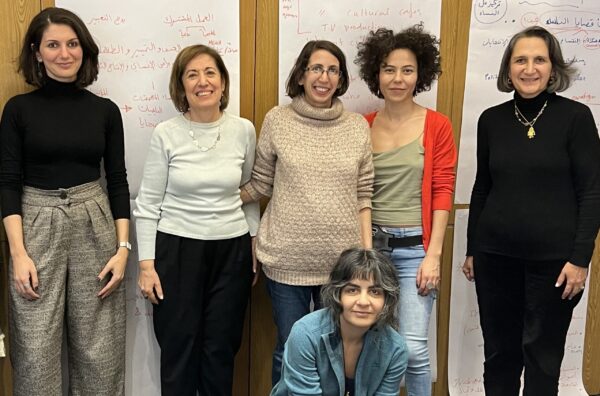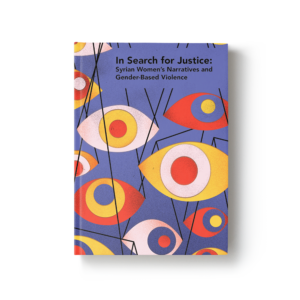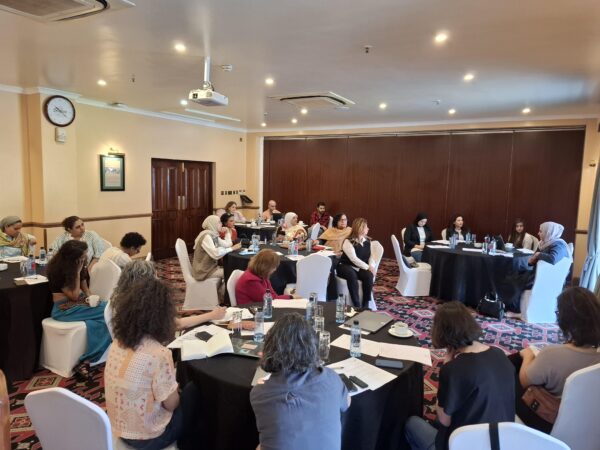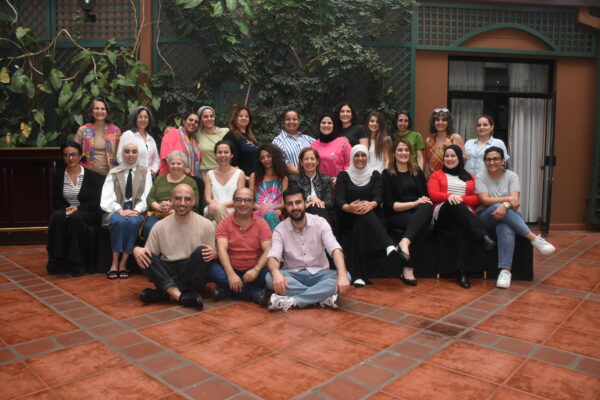 The Syrian Revolution was a response to forty years of extreme and harrowingly brutal systemic injustices that touched every facet of Syrian life and left no group or community unscathed. Syria’s recent history is marked by decades of persecution and massacres, many of which remain untold. From the 1962 exceptional census that stripped thousands of Syrian Kurds of their citizenship to the 1982 Hama massacre, and countless other atrocities, Syrians have endured systematic violence that has been silenced or erased from official narratives. Post- 2011, the war waged on the civilian population by the regime and other fighting factions, further exposed Syrians to such horror that it seems unfathomable that these experiences can ever be overcome. We therefore believe that there cannot be a true transition to peace and stability, if the collective trauma of the war, and the decades of authoritarian violence preceding it, is not addressed.
The Syrian Revolution was a response to forty years of extreme and harrowingly brutal systemic injustices that touched every facet of Syrian life and left no group or community unscathed. Syria’s recent history is marked by decades of persecution and massacres, many of which remain untold. From the 1962 exceptional census that stripped thousands of Syrian Kurds of their citizenship to the 1982 Hama massacre, and countless other atrocities, Syrians have endured systematic violence that has been silenced or erased from official narratives. Post- 2011, the war waged on the civilian population by the regime and other fighting factions, further exposed Syrians to such horror that it seems unfathomable that these experiences can ever be overcome. We therefore believe that there cannot be a true transition to peace and stability, if the collective trauma of the war, and the decades of authoritarian violence preceding it, is not addressed.
 Building a future, centred around prosperity, requires rebuilding a society that is cohesive and functional. This necessitates a population with the capacity, agency, and will, to do so. This, in turn, requires dealing with the past. When thinking of the entire Syrian population, with its vastly different lived realities, this is only possible if everyone’s truth and experiences are acknowledged, preserved, and included in the national narrative.
Building a future, centred around prosperity, requires rebuilding a society that is cohesive and functional. This necessitates a population with the capacity, agency, and will, to do so. This, in turn, requires dealing with the past. When thinking of the entire Syrian population, with its vastly different lived realities, this is only possible if everyone’s truth and experiences are acknowledged, preserved, and included in the national narrative.
 Hegemonic historical narratives, shaped to serve prevailing power structures, have long prioritized political and military events while disregarding everyday life and the lived realities of the majority. These accounts, often male-dominated, have not only failed to break cycles of violence, systemic injustice, and trauma but have also marginalized grassroots experiences, including feminist movements and women’s roles in broader social and political struggles. Conventional approaches to historical writing have reinforced these gaps, leaving Syria’s evolving socio-political and cultural landscape inadequately represented. At Badael, we are committed to fostering a Syrian historical narrative that is both authored by and centred on the Syrian people, one that reflects untold stories, acknowledges diverse experiences across societal strata, and contributes to healing, regaining agency, and laying the groundwork for transformative justice.
Hegemonic historical narratives, shaped to serve prevailing power structures, have long prioritized political and military events while disregarding everyday life and the lived realities of the majority. These accounts, often male-dominated, have not only failed to break cycles of violence, systemic injustice, and trauma but have also marginalized grassroots experiences, including feminist movements and women’s roles in broader social and political struggles. Conventional approaches to historical writing have reinforced these gaps, leaving Syria’s evolving socio-political and cultural landscape inadequately represented. At Badael, we are committed to fostering a Syrian historical narrative that is both authored by and centred on the Syrian people, one that reflects untold stories, acknowledges diverse experiences across societal strata, and contributes to healing, regaining agency, and laying the groundwork for transformative justice.
Under this objective, and in line with our values and approaches, we launched the Syrian Women’s Oral History project in 2018. Rooted in our philosophy that knowledge production and memory preservation should be locally-owned, the project mobilised Syrian women from displaced communities in Turkey to take on an active role in the preservation and production of Syria’s historical narrative. Over 250 interviews have since been conducted and more than 300 hours recorded by and with Syrian women. Deliberate efforts have been made to capture the heterogeneity of Syrian women, with narrators representing a diverse cross-section of backgrounds. Likewise, the stories themselves cover a diverse range of themes and life experiences, from living under siege and detention to participation in the revolution and political activism. The collected testimonies, contain incredible insights, and offer an invaluable source to understanding Syria before and after the revolution.
 We recognise that the exclusion webs in Syria are connected to those in the region. Therefore, and stemming from our belief in collective learning and collective struggles, we came together in 2022 with three other feminist organisations from the region, Al-Rowat from Palestine, Knowledge Workshop from Lebanon, and Women and Memory from Egypt, to form the Feminist Oral History Network in MENA (SARD). SARD’s mission is to transform power relations and enhance justice across the MENA region by reclaiming historical narrative through feminist oral history interventions, which counter intersectional inequities by championing marginalised voices and uncovering forgotten experiences. At its core, the network is dedicated to actively involve a diverse range of actors in documenting the MENA region’s historical narratives. Upholding the values of justice, inclusivity, and equality is a commitment to the core identity of the network.
We recognise that the exclusion webs in Syria are connected to those in the region. Therefore, and stemming from our belief in collective learning and collective struggles, we came together in 2022 with three other feminist organisations from the region, Al-Rowat from Palestine, Knowledge Workshop from Lebanon, and Women and Memory from Egypt, to form the Feminist Oral History Network in MENA (SARD). SARD’s mission is to transform power relations and enhance justice across the MENA region by reclaiming historical narrative through feminist oral history interventions, which counter intersectional inequities by championing marginalised voices and uncovering forgotten experiences. At its core, the network is dedicated to actively involve a diverse range of actors in documenting the MENA region’s historical narratives. Upholding the values of justice, inclusivity, and equality is a commitment to the core identity of the network.